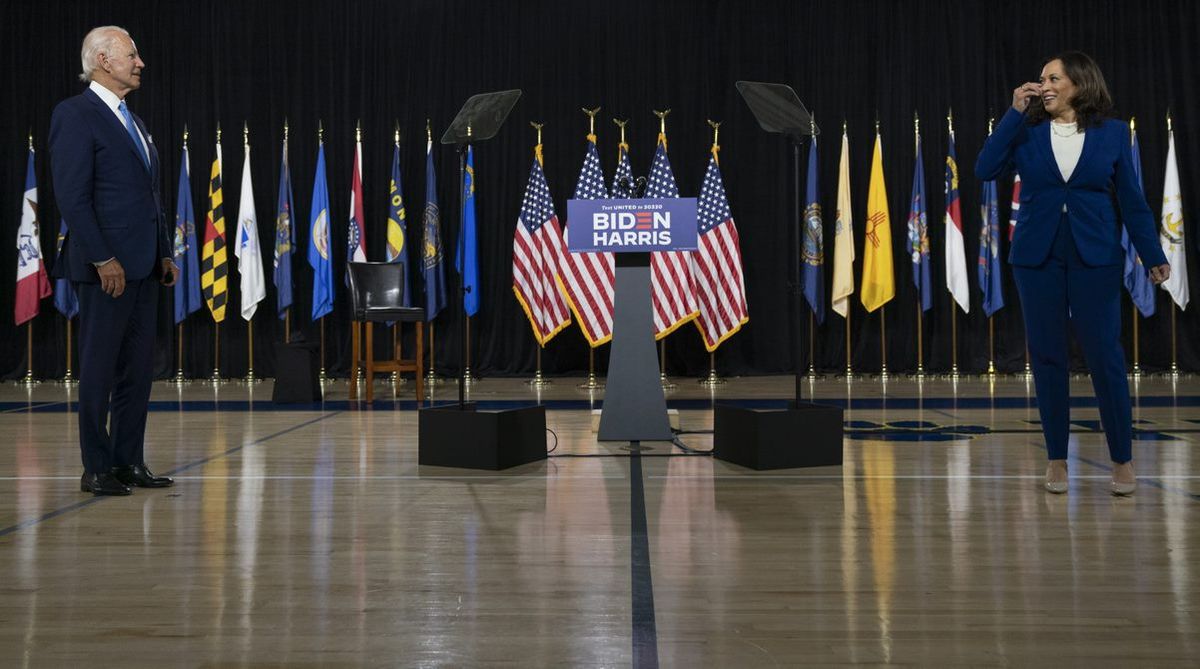Cannabis issues face voters in November

When asked by a Washington Examiner reporter in 2019 whether marijuana would be legalized under his watch, President Donald Trump kicked the matter back to the states to make their own decisions.
But in mid-August 2020, he urged Republicans not to place any marijuana initiatives on state ballots because of his concern that it would increase Democratic voter turnout. After staying relatively silent on the issue, this was a significant turn of events – and far from advocating that states set their own policies.
According to a Gallup poll, 66 percent of Americans favor legalizing cannabis nationally, with an April 2018 poll from Quinnipiac University finding that Americans support patient access to medical marijuana 93-5.
Marijuana is still listed as a Schedule I substance at the federal level, which means it is considered illicit, prone to abuse and not recognized as having any medical benefits. Even so, 33 states have legalized medical marijuana since 1996, with 11 states allowing adult recreational use, possession and cultivation.
Trump has mostly side-stepped the issue by throwing management back to the states, but his first attorney general, Jeff Sessions, made no secret of his disdain for cannabis. His successor, William Barr, was found to harass legal cannabis companies with antitrust allegations because of his personal dislike for the industry, according to the Chicago Tribune.
On the Democratic ticket, vice presidential candidate Sen. Kamala Harris could make some in-roads to legalization on a federal level. As attorney general of California, she endorsed legalization of recreational cannabis, which was approved by California voters in 2016.
Harris is also the lead sponsor on legislation to lift the federal ban. Her bill would remove marijuana from the Controlled Substances Act, leaving its status up to individual states, while also authorizing expungement and sentencing reviews for people who were convicted of federal marijuana offenses.
In April she tweeted “the Senate must pass my Marijuana Opportunity Act to legalize marijuana at the federal level and expunge non-violent marijuana-related offenses from the records of the millions who’ve been arrested or incarcerated. Too many lives have been ruined by these regressive policies.”
As for her running mate, former Vice President Joe Biden is warming to decriminalizing recreational use, legalization for medical use, and expungement of convictions. He is also in favor of classifying marijuana as a Schedule II drug, a designation reserved for dangerous drugs that have medical value. Rescheduling still carries with it the threat of criminal penalty for use, possession or cultivation.
Moving marijuana to Schedule II and resuming the non-enforcement stance of the Obama administration, could help the industry, but won’t address some federal-state conflicts or the problem of banking for the industry.
At the state level this fall, several initiatives are on their respective ballots, per the cannabis lobbying organization NORML.
New Jersey: Members of the New Jersey Legislature approved a proposed constitutional amendment in December 2019 by a three-fifths majority, firmly placing a question to allow regulated adult-use cannabis sales on the November ballot. Nearly seven in 10 New Jersey voters have said they intend to vote in favor.
Mississippi: Two competing medical measures have qualified for the ballot. A citizen-driven campaign will allow patients to access up to 2.5 ounces of cannabis per 14-day time period. Under a less clear and more restrictive initiative created by the Mississippi Legislature, patients would be prohibited from smoking whole-plant marijuana.
South Dakota: Two separate measures have qualified for the ballot. Constitutional Amendment A would legalize recreational marijuana. Measure 26 would legalize cannabis for medical use; with a doctor’s approval, a patient could purchase and possess up to three ounces of marijuana and grow up to three plants for therapeutic use. This is the first state to have both medical and recreational use on one ballot.
Arizona: If approved, Initiative 23 would allow adults to possess up to an ounce of marijuana and cultivate up to six plants for personal use.
Montana: New Approach Montana has gathered enough signatures to qualify for the ballot. I-190 would allow adults to possess one ounce and cultivate up to four plants for personal use. CI-118 amends the state constitution so that only those age 21 and older can patronize legal cannabis businesses.
Oklahoma: State Question 807 would have allowed adults to legally purchase and possess marijuana for personal use. Proponents withdrew the measure, as it was unfeasible to collect signatures during the pandemic.
Nebraska: Activists gathered at the state Capitol in July to turn in over 182,000 signatures from registered voters to get a medical marijuana initiative on the ballot. It would allow qualifying patients, with a doctor’s approval, to use medical marijuana and “discreetly” grow for therapeutic use.
Idaho: Signature gathering was suspended in March for an initiative to place medical marijuana on the ballot due to COVID restrictions. Russ Belville, campaign spokesperson for the Idaho Cannabis Coalition said, “we always knew protecting patients in America’s most pot-hating state would require a great deal of effort. Now it appears it will require a lawsuit.” He and other medical advocates are exploring legal options for either this November or 2022.
California: The California Cannabis Hemp Heritage Act would make changes to the state’s licensing and taxation rules in an effort to expand access to marijuana. Signatures were still being gathered as of this writing.